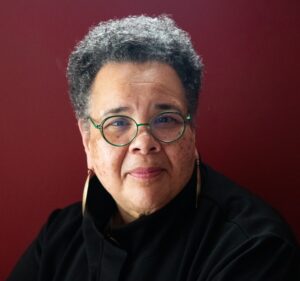
Knowing Your Place
To listen to this blog, click here.
Those of us serving on faculties cannot escape the deep influence of the culture of the school upon our scholarship. Where you teach has as much to do with your scholarly formation as what you teach. The location of the doing of your scholarship will allow or deny your sense of belonging, rootedness, and contribution. For this reason, we must develop a curiosity for our context and an imagination for elsewhere. Ask yourself: What is this place to me? What has this place been for those like me? Is there a healthier place for me and my work?
In the early years of my career, participation in Wabash Center afforded me conversations on scholarly identity and formation for which my place of employment did not know how to provide. The lack of mentoring I received from my school was in no way unique. They were not neglectful. I have come to understand that few schools in higher education provide in-depth, intentional faculty formation. Wabash Center programming, then and now, fills a gap for networking and provides opportunities for critical reflection and planning. We provide exposure for faculty to the varieties of pedagogical approaches and dialogue for ways of achieving those approaches. These conversations are often life-giving and career-saving. Routinely, Wabash Center provides a space to prepare you for knowing your place.
Faculty are taught the importance of learning to read the context in which they are employed. We dissuade colleagues from thinking that the performance of, and achievements in, scholarship can be thought of as being generic or universal. No two schools are the same. All schools have known procedures as well as unspoken expectations, whispered secrets, and under-tapped resources.
I remember it clearly. It was an assignment that substantially impacted my career. The assignment given our cohort group in my first Wabash Center workshop was to:
- compile all the institutional documents to which you are privy (e.g. faculty handout, tenure process and procedure instructions, promotion process, school mission statement, organizational chart, statement of charter, history, accreditation report(s), etc.),
- read all the compiled documents and take notes as you read,
- consider your given context, and now create a map/plan of your
- (1) teaching, (2) service, and (3) scholarship for 1 year, 3 years, 5 years, 7 years.
We were instructed to return to next summer’s gathering with a thoughtful plan for our own scholarship in our own contexts.
I tell you confessionally, but not ashamedly, that if I had not been given this assignment at Wabash, I would not have made an intentional study of my location, nor would I have created a clear path for my scholarship. Fulfilling this assignment gave me insights that I did not know I needed.
When I compiled and read the university materials, I gained knowledge of the place that I had not previously known and that had not been made clear to me. Creating my map lowered my anxiety about the tenure process. The exercise made me more articulate about who I was as a scholar, and what I wanted for myself in my scholarly pursuits. My aspirations became vivid. It was a kind of liberation.
And so, more than twenty years later, I am instructing our Associate Directors to develop a map, a plan, a schedule that reflects and actualizes their aspirations and hopes for their own scholarship. They cannot, must not, wait for me to shape them into my image. Their scholarly identity must be in their own hands and hearts. They will have to decide if rooting their work in the place of Wabash Center satisfies the need of their soul. Here are nine reflection questions I offered to them:
- What does it mean to understand your work as scholarship?
- What, for you, is the production of new knowledge?
- What does it mean to see yourself as a scholar of religion?
- How does your family make sense of your profession?
- How does your community make sense of this profession?
- What do you imagine to be the advantages and disadvantages of your career for your loved ones?
- How will you keep connected to your family as you do this work?
- Thinking in metaphors or similes, what scholarly identity are you imagining and pursuing?
- Since scholarship is typically organized and judged in activities of teaching, service, and research/publication – how will you pursue each of these elements? Be specific.
- Are there other scholarly pursuits beyond these three elements that are of interest?
- What expressions of scholarship, or discrete projects, do you want to pursue in the next 2 years, 5 years, 10 years?
- How do these projects fit into the institutional narrative and mission?
- What are the obstacles to these pursuits?
- Who are your scholarly conversation partners? Who are your mentors?
- What is your scholarly niche, specialty, focus, expertise, and how does this specialty align with your institutional context?
- What will it take for your flourishing? What are the prerequisites for your healing?
- What are the needed habits and practices to support your scholarly aspirations and plans?
- How do you nurture your imagination, creativity, and artistry?
Be mindful that a plan is meant to guide and not to constrain. Plans will change as new opportunities are recognized and as your context ebbs and flows.
Be mindful that the place that prefers scholars who are indifferent or passive about their own formation will likely react to your exercise of agency and self-determination.
Be mindful that few can call the academy home – so most are strangers in this strange land.
Healthy formation in academic places requires forethought, provisions, anticipation, and time. We must have our own best interests at heart lest we be tossed and entangled by others’ agendas for our ideas, our labors, our souls.
Leave a Reply